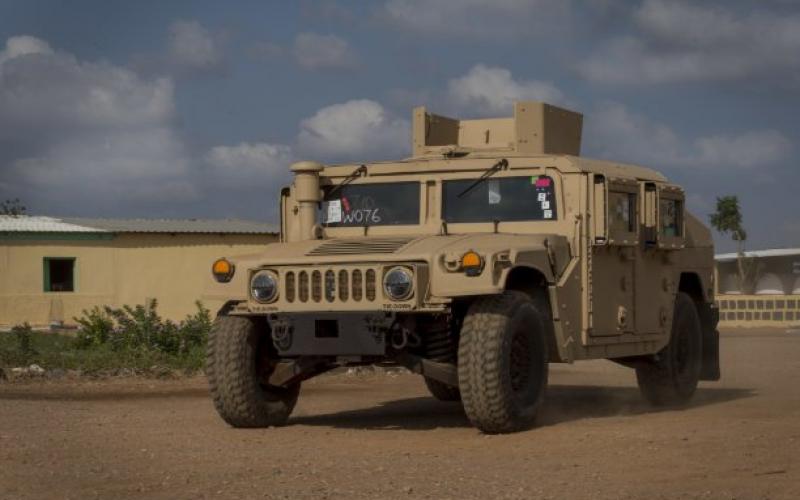
RH. CAMP LEMONNIER, Djibouti - The United States delivered 54 High Mobility Multipurpose Wheeled Vehicles, known as the Humvee, to the Armed Forces of Djibouti (FAD) for use by its Rapid Intervention Battalion (RIB) as part of a $31 million train-and-equip partnership between the U.S. government and the Djiboutian military.
“On behalf of Gen. Zakaria Chiek Ibrahim, chief of staff, Djiboutian Armed Forces, I would like to thank the U.S. government and CJTF-HOA for their support to this battalion and the cooperation between our two countries,” said Djiboutian Army Maj. Mohamed Assoweh, commander of the RIB.
The RIB is a FAD advanced infantry battalion, trained and equipped by the Combined Joint Task Force – Horn of Africa (CJTF-HOA). Its primary mission is to train and serve as a quick reaction force to accomplish specified tasks directed by its higher command in the Djiboutian army.
“The Humvees will enable us to facilitate future tasks and missions within the battalion and help us achieve our higher goals and objectives,” said Assoweh.
Djiboutian soldiers assigned to the RIB are trained in light infantry tactics, mission planning, weapons training, first aid, land navigation, communication exercises, and additional advanced instruction by U.S. Army soldiers from Task Force Guardian, 41st Infantry Brigade Combat Team, 186th Infantry Battalion, Oregon National Guard, assigned to CJTF-HOA.
“The delivery of these Humvees offers the RIB a new motorized capability that they previously did not have,” said U.S. Marine Corps Capt. Adrian Lopez, RIB project officer assigned to CJTF-HOA. This will enable a faster response time if the RIB is called to action by the Djiboutian government.
Prior to the delivery of the vehicles, the 492nd Engineering Company repaired approximately three miles of road to the RIB compound over the course of four days after record storms in Djibouti in early November.
“The roads to the RIB were severely degraded and extremely difficult to travel on, said Lopez. “If the engineers didn’t improve the road, this delivery could not have happened, so a huge thanks to them for helping make this possible.”
source. www.africom.




